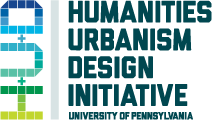News
The Culture of Cultivation: Designing with Agriculture
11.01.17
The earliest roots of place making have involved a symbiosis of different kinds of natures: a necessary one of production—also called the “other” or “second” nature to distinguish it from the pristine “first”—and a third nature of polite, yet dispensable, aesthetic appreciation, its distinctness articulated in the 16th century. The etymology of the word garden, from the Frankish gardo, in fact, refers to an “enclosed place” that can be cultivated both for pleasure and for consumption. The history of landscape architecture is replete with examples in which the relationship between the beautiful and the productive—with the former often indebted to the latter—is apparent. According to Charles Elliot, speaking in 1891, the design work of a successful landscape architect will elicit beauty “from the happy marriage of the natural and the needful.” Yet today, the needful, or functional, has almost been lost to the discourse, with little attention paid to such problems as soil conservation, the globalization of food production, and the effects that industrial agriculture—the largest landholder and producer of monocultures—has on the environment and its inhabitants.
The objective of this conference is therefore to create a cross-disciplinary forum that will address the relationship between landscape design and the productive or working landscape from a variety of lenses. The latter will include the perspectives of a few emerging and established professionals, whose work has begun to explore the relationship and interaction between design, agriculture and infrastructure; the research of historians who have addressed the relationship between the worlds of second and third nature; the contributions of planners who have studied the challenge of urban food production; and those of scholars who have devoted their attention to the conservation of natural resources, the protection of biodiversity within working landscapes, and the preservation of the latter for their historic, social and cultural values.
Licensed landscape architects may register for CEU credit at the event.
